-
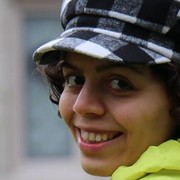
Samira Abnar
PhD candidate at FNWI 2016 - 2023
I work on the intersection of machine learning and cognitive science. I am interested to understand the underlying mechanisms of learning in humans and machines. The main focus of my PhD research is on neural network models for language processing. In our group, we try to find different ways to better understand the learning process of neural networks. For instance, one of the interesting things we do is using brain data as a biological reference to inspect and evaluate the representations learned by neural networks when they are trained to model human language. Our ultimate goal is to not only build machines that can learn and generalise in a similar way that humans do, but also gain more insights about how the human brain works. -

Thom van Gessel
PhD candidate at FNWI 2016-2022
Traditionally, the meaning of a sentence is understood in terms of the conditions under which it is true. A shortcoming of this analysis is that it cannot capture the meaning of questions, because they are not true or false. The recently developed framework of inquisitive semantics identifies the meaning of a sentence with the conditions under which it is supported by a given information state. Within this framework, I study the interaction between modality and questions, from a linguistic as well as from a logical perspective. -
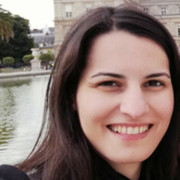
Anthia Solaki
PhD candidate at FNWI 2017 - 2021
Our reasoning, as individuals and as groups, is subject to limitations, e.g. in time, memory, attention, and prone to systematic divergence from the standard picture of rationality. However, logical models for human reasoning often neglect such findings. In this project, we argue for the importance of building bridges between logic, psychology, and epistemology, and develop formal frameworks to this end. -
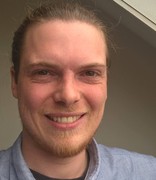
Levin Hornischer
PhD candidate at FNWI 2017 - 2021
Neural networks are the powerful engines of modern artificial intelligence. However, we still don't really understand them: unlike classical computers, we don't have a good language or framework to explain and predict the behaviour of neural networks. Finding such a framework is a fascinating open problem at the intersection of AI, logic, math, and cognitive science. -
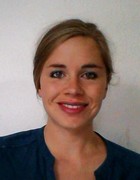
Dieuwke Hupkes
PhD candidate at FNWI 2015 - 2020
Why are blackbox artificial neural network models so good at many natural language processing tasks? I hope that, by studying them, I can learn more about what makes natural language what it is and then use that knowledge to make computer models of language even better. -

Tom Schoonen
PhD candidate at FGw at 2017-2020
There are many things that are not the case, but that we know could have been the case. I could have taken public transport to get to work instead of taking the bike. Having knowledge of these non-actual situations is crucial for our future planning, risk assessment, and counterfactual reasoning. I use tools of logic, cognitive science, and philosophy to try to understand how it is that we know what is possible and whether we can justify this knowledge. -
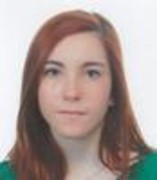
Zoi Terzopoulou
PhD candidate at FNWI 2017 - 2021
Making decisions collectively in a fair and efficient way is a central part of a well-functioning society. We design and analyse methods for group decision making using tools from the areas of mathematics and logic in small-scale but also in large-scale contexts, like national elections, business choices, negotiations between friends and families, etc. -

Yfke Dulek
PhD candidate at CWI/FNWI 2016-2021
Quantum computers may bring us great computational power, but how can we make that power available to users that cannot house an entire quantum machine? By analyzing the information contained in quantum states, I design algorithms for delegated quantum computation that, ideally, ensure privacy and verifiability for the user. -

Ana Lucia Vargas Sandoval
PhD candidate at FNWI
2016 - 2020Learning about our world through our observations might be one of the simplest things we do as humans but one of the most complex processes to study. I believe that developing and connecting multiple frameworks about learning is a means to gain valuable insight into the actual processes that make human learning possible. Also, it sheds light on many open learning-paradigms in the philosophy of information, artificial intelligence and cognitive science. -

Dr. Raquel Garrido Alhama
PhD in Computational Linguistics
2012-2017While all animals have a communication system, human language is unique in some of its properties. Which of our learning abilities are we using when we acquire new language? And how do these learning abilities differ from those of animals? -
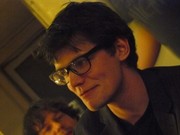
Jelle Bruineberg
PhD candidate in Philosophy
2014-2018Most of the time, we do not think about what we do. We just respond in an adequate way to what our environment has to offer. I am interested in how brain, body and world contribute jointly to such episodes of everyday skillful behavior, but also in how unreflective and more reflective actions mesh together. I use phenomenology, theoretical neuroscience and embodied cognitive science to try to better understand these questions. -

Fleur Bouwer
PhD candidate in Music Cognition 2011-206
The ability to perceive a beat in music allows us to enjoy music together, to perform together, to sing and to dance. However, as simple as this ability may seem - even little children can feel the beat - the mechanisms behind it are still ill understood. In my project we use EEG, fMRI and behavioral methods to find out what the necessary ingredients are for us to hear a beat in music. -
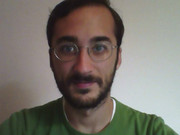
Giovanni Cinà
PhD candidate at FNWI
2013-2017My research interests revolve around the intersection of Category Theory and Modal Logic. I am interested in relating the two at an abstract level, investigating whether techniques and results can be transferred from one to the other, and in specific applications, such as topics in Theoretical Computer Science, Quantum Theory and formal models of social phenomena. -
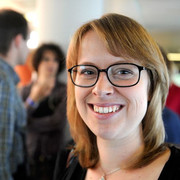
Corina Koolen
PhD candidate with The Riddle of Literary Quality (KNAW) 2012-2018
The reason that a Julian Barnes' novel is seen as more literary than 'Fifty Shades of Grey', can be objectified by computationally analyzing the text of those novels. That is our hypothesis. From the word-level to higher-end structures, we explore multiple layers of the texts. -
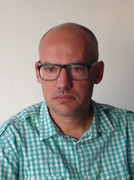
Elbert Booij
PhD candidate
April 2014-2021My main area of interest is metaphysics; in this discipline, I believe, strictness and a sense of detail should be valued above wide-ranging claims. Language is important because it is our clearest window on the world and the way we experience it. But it does not constitute them. -
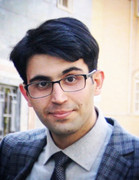
Mostafa Dehghani
PhD candidate since September 2014-2020
There is a great deal of implicit connections between pieces of information in different datasources. Making these implicit connections explicit enables us to deal with a more enriched data in exploratory search. My research lies on exploiting machine learning approaches to establish and follow connections between content of the digitized cultural heritage data and the Linked Open Data cloud. The resulting collection will have unprecedented power, with a wealth of information in semantic annotation and links which helps a searcher explore this rich content.
